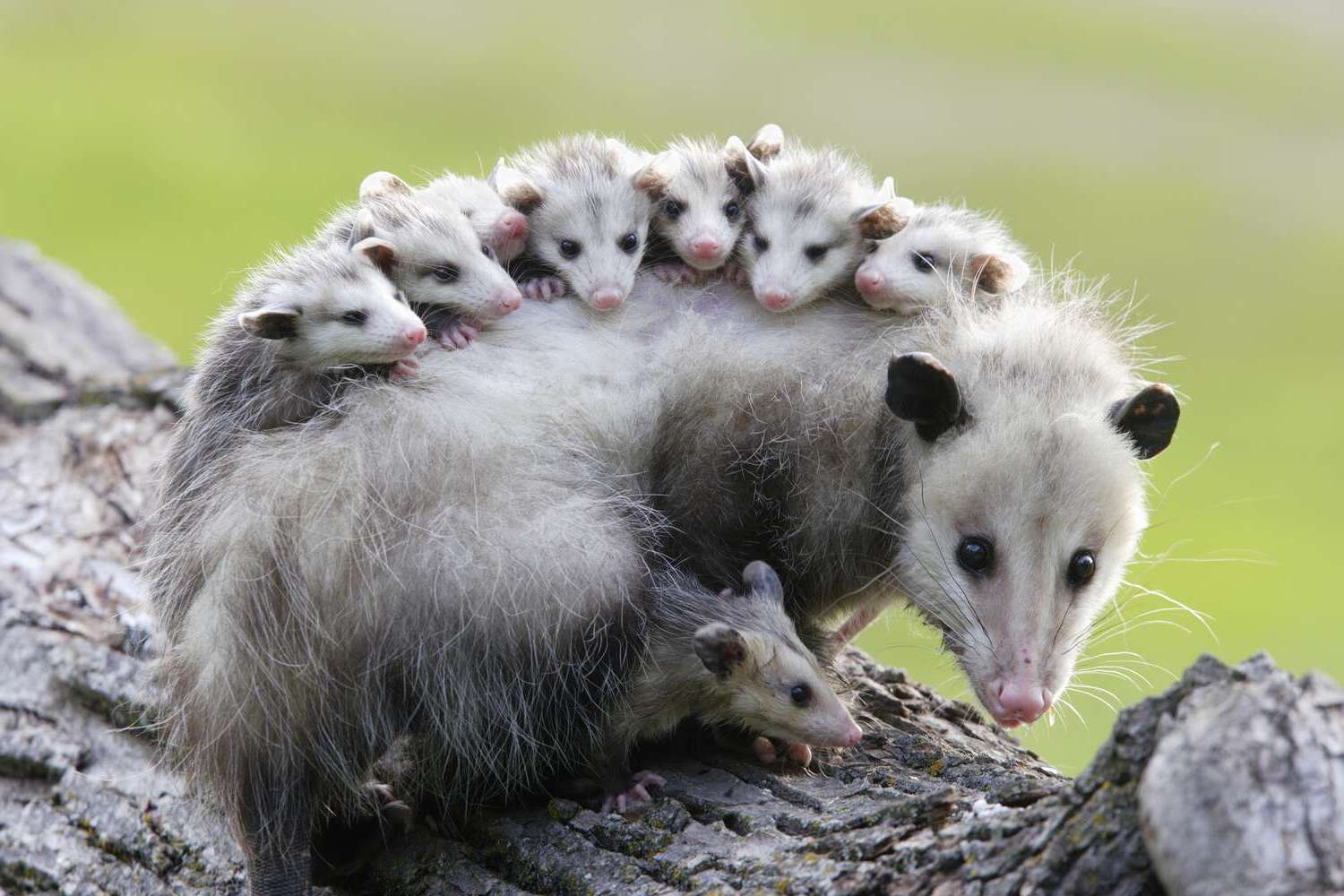
Ever wondered about those quirky creatures that roam the night with their beady eyes and prehensile tails? Yes, I'm talking about opossums! Often misunderstood and underappreciated, these little critters carry around a backpack full of surprises. Did you know that opossums are immune to snake venom? Or that they play dead not by choice but as an involuntary reaction? Buckle up, because we're about to dive into the fascinating world of opossums. From their ancient origins to their unique biological quirks, get ready to have your mind blown by 17 facts about opossums that you definitely didn't know. Whether you're an animal enthusiast or just curious, these insights will change the way you see these nocturnal wanderers.
Key Takeaways:
- Opossums are fascinating creatures with unique traits, like playing dead and eating ticks. They help keep ecosystems clean and are North America's only marsupials, like kangaroos.
- Despite being misunderstood, opossums are beneficial to the environment. They clean up dead animals, eat pests, and are resistant to rabies. Understanding them can lead to greater appreciation for these quirky animals.
Opossums: Nature's Misunderstood Night Wanderers
Opossums, often seen as mere backyard visitors, hold a fascinating array of traits and behaviors that set them apart in the animal kingdom. Let's dive into some intriguing facts about these creatures that might change the way you view them next time they cross your path.
-
Opossums are North America's only marsupials. This means, like kangaroos, they carry and nurse their young in a pouch.
-
These animals have a remarkable immune system. They show resistance to rabies, thanks to their low body temperature, making encounters with them safer than one might think.
-
Playing dead is not just an act; it's an involuntary response. When threatened, opossums fall into a comatose state that can last for hours, deterring predators.
The Diet of an Opossum: More Varied Than You'd Guess
Opossums are not picky eaters. Their diet contributes significantly to their role in ecosystems as natural cleaners.
-
They are omnivores, feasting on everything from fruits and nuts to small rodents and insects. Their eating habits help control populations of unwanted pests.
-
Surprisingly, opossums also consume ticks in large quantities, making them allies in reducing the spread of Lyme disease.
-
A lesser-known fact is that these creatures have a partiality for snakes, including venomous ones. Their immunity to snake venom allows them to prey on snakes without risk.
Opossums' Unique Physical Features
The physical attributes of opossums are as unique as their behaviors, contributing to their survival skills.
-
One of their most notable features is their prehensile tail. Used for grasping and balancing, it's often mistaken for a fifth limb.
-
Opossums possess an impressive set of 50 teeth, more than any other North American mammal, aiding in their varied diet.
-
Their thumbs, or "opposable halluces," are found on the hind feet and aid in climbing and holding onto branches.
The Social Life of Opossums
Contrary to popular belief, opossums lead solitary lives and only come together to mate.
-
These nocturnal creatures prefer the cover of darkness for their activities, reducing the chances of predator encounters.
-
Female opossums are nurturing mothers. They can give birth to up to 20 babies in a single litter, though not all survive due to the limited number of teats in the pouch.
-
Young opossums, once independent, must fend for themselves, as their mothers do not teach them survival skills.
Opossums and Their Interaction with Humans
While often considered pests, opossums can play beneficial roles in gardens and urban areas.
-
Their scavenging nature means they help clean up dead animals and overripe fruits, reducing the spread of rot and disease.
-
Opossums rarely cause damage to gardens. In fact, by eating unwanted pests, they can be helpful to gardeners.
-
Despite their benefits, opossums can sometimes rummage through trash cans in search of food, leading to messy encounters with humans.
The Misconceptions Surrounding Opossums
Many myths and misunderstandings about opossums exist, but learning the facts can foster appreciation for these unique animals.
-
Opossums are often mistaken for being dirty and disease-ridden, but in reality, they groom themselves as meticulously as cats do.
-
Their hissing and drooling behavior when threatened is often mistaken for aggression or rabies. However, this is merely a bluff to ward off predators, not a sign of disease.
Understanding opossums better can lead to a greater appreciation for these unique, misunderstood creatures that play an important role in our ecosystems.
A Final Peek at Opossum Oddities
Opossums, often misunderstood creatures, carry a bundle of surprises. From their immunity to snake venom to playing dead, these critters have evolved with some fascinating survival tactics. They're not just about rummaging through trash; they're nature's cleanup crew, keeping our environment free from ticks and dead animals. Their unique behaviors and traits, like prehensile tails and opposable thumbs, showcase nature's creativity. Understanding these facts helps us appreciate the complexity and importance of every creature in our ecosystem, no matter how small or seemingly insignificant. Next time you spot an opossum, remember, you're looking at a marvel of evolution, a survivor that's been around since the dinosaurs. Their story is a testament to the wonders of wildlife and the intricate balance of our natural world.
Frequently Asked Questions
Was this page helpful?
Our commitment to delivering trustworthy and engaging content is at the heart of what we do. Each fact on our site is contributed by real users like you, bringing a wealth of diverse insights and information. To ensure the highest standards of accuracy and reliability, our dedicated editors meticulously review each submission. This process guarantees that the facts we share are not only fascinating but also credible. Trust in our commitment to quality and authenticity as you explore and learn with us.


